External links
| International | |
|---|---|
| National | |
| Academics | |
| Other | |
| | This biography of an American philosopher is a stub. You can help Wikipedia by expanding it. |
Neil Tennant | |
|---|---|
| Born | 1 March 1950 |
| Era | Contemporary philosophy |
| Region | Western philosophy |
| School | Analytic |
Main interests | Metaphysics Philosophy of logic |
Notable ideas | Anti-realist semantics for empirical language |
Neil Tennant (born 1 March 1950) is an American philosopher. He is Arts & Humanities Distinguished Professor of Philosophy at the Ohio State University; and, before taking up his appointment at the Ohio State University he held positions at the University of Edinburgh, the University of Stirling, and the Australian National University.
Along with Michael Dummett, Crispin Wright, Tennant is one of the most notable figures who have attempted to extend the project of providing anti-realist semantics for empirical language. [1] [2] He has also written extensively on intuitionistic logic and other non-classical logics.
Tennant was the editor of the journal American Philosophical Quarterly from 2004 to 2007.
He was elected to the Australian Academy of the Humanities, as a Corresponding Fellow, in 1990. [3] [4]
In analytic philosophy, anti-realism is the position that the truth of a statement rests on its demonstrability through internal logic mechanisms, such as the context principle or intuitionistic logic, in direct opposition to the realist notion that the truth of a statement rests on its correspondence to an external, independent reality. In anti-realism, this external reality is hypothetical and is not assumed.

Friedrich Ludwig Gottlob Frege was a German philosopher, logician, and mathematician. He was a mathematics professor at the University of Jena, and is understood by many to be the father of analytic philosophy, concentrating on the philosophy of language, logic, and mathematics. Though he was largely ignored during his lifetime, Giuseppe Peano (1858–1932), Bertrand Russell (1872–1970), and, to some extent, Ludwig Wittgenstein (1889–1951) introduced his work to later generations of philosophers. Frege is widely considered to be the greatest logician since Aristotle, and one of the most profound philosophers of mathematics ever.
Analytic philosophy is an analysis focused, broad, contemporary movement or tradition within Western philosophy, especially anglophone philosophy. Analytic philosophy is characterized by a clarity of prose; rigor in arguments; and making use of formal logic and mathematics, and, to a lesser degree, the natural sciences. It is further characterized by an interest in language and meaning known as the linguistic turn. It has developed several new branches of philosophy and logic, notably philosophy of language, philosophy of mathematics, philosophy of science, modern predicate logic and mathematical logic.

John Henry McDowell is a South African philosopher, formerly a fellow of University College, Oxford, and now university professor at the University of Pittsburgh. Although he has written on metaphysics, epistemology, ancient philosophy, nature, and meta-ethics, McDowell's most influential work has been in the philosophy of mind and philosophy of language. McDowell was one of three recipients of the 2010 Andrew W. Mellon Foundation's Distinguished Achievement Award, and is a Fellow of both the American Academy of Arts & Sciences and the British Academy.
Crispin James Garth Wright is a British philosopher, who has written on neo-Fregean (neo-logicist) philosophy of mathematics, Wittgenstein's later philosophy, and on issues related to truth, realism, cognitivism, skepticism, knowledge, and objectivity. He is Professor of Philosophical Research at the University of Stirling, and taught previously at the University of St Andrews, University of Aberdeen, New York University, Princeton University and University of Michigan.
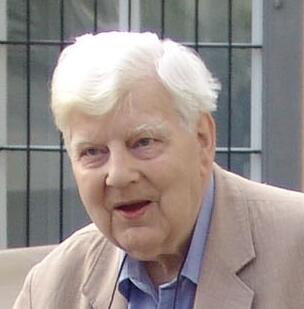
Sir Michael Anthony Eardley Dummett was an English academic described as "among the most significant British philosophers of the last century and a leading campaigner for racial tolerance and equality." He was, until 1992, Wykeham Professor of Logic at the University of Oxford. He wrote on the history of analytic philosophy, notably as an interpreter of Frege, and made original contributions particularly in the philosophies of mathematics, logic, language and metaphysics.
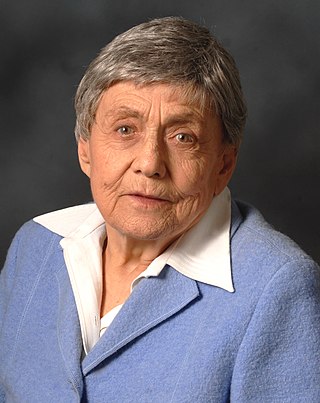
Ruth Barcan Marcus was an American academic philosopher and logician best known for her work in modal and philosophical logic. She developed the first formal systems of quantified modal logic and in so doing introduced the schema or principle known as the Barcan formula. Marcus, who originally published as Ruth C. Barcan, was, as Don Garrett notes "one of the twentieth century's most important and influential philosopher-logicians". Timothy Williamson, in a 2008 celebration of Marcus' long career, states that many of her "main ideas are not just original, and clever, and beautiful, and fascinating, and influential, and way ahead of their time, but actually – I believe – true".

David Kellogg Lewis was an American philosopher. Lewis taught briefly at UCLA and then at Princeton University from 1970 until his death. He is closely associated with Australia, whose philosophical community he visited almost annually for more than 30 years.
Contemporary philosophy is the present period in the history of Western philosophy beginning at the early 20th century with the increasing professionalization of the discipline and the rise of analytic and continental philosophy.
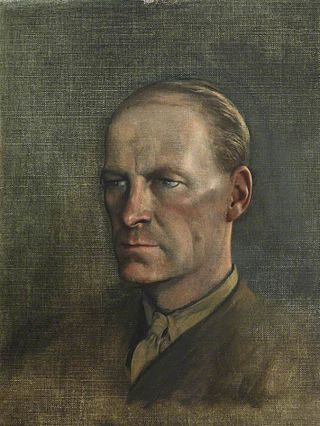
Gilbert Ryle was a British philosopher, principally known for his critique of Cartesian dualism, for which he coined the phrase "ghost in the machine." He was a representative of the generation of British ordinary language philosophers who shared Ludwig Wittgenstein's approach to philosophical problems.
Bastiaan Cornelis van Fraassen is a Dutch-American philosopher noted for his contributions to philosophy of science, epistemology and formal logic. He is a Distinguished Professor of Philosophy at San Francisco State University and the McCosh Professor of Philosophy Emeritus at Princeton University.

Gregory Paul Currie FAHA is a British philosopher and academic, known for his work on philosophical aesthetics and the philosophy of mind. Currie is Emeritus Professor of Philosophy at the University of York and Executive Editor of Mind & Language.
Philosophy is the study of general and fundamental problems concerning matters such as existence, knowledge, values, reason, mind, and language. It is distinguished from other ways of addressing fundamental questions by being critical and generally systematic and by its reliance on rational argument. It involves logical analysis of language and clarification of the meaning of words and concepts.
Verificationism, also known as the verification principle or the verifiability criterion of meaning, is the philosophical doctrine which asserts that a statement is meaningful only if it is either empirically verifiable or a truth of logic.
David Andrew Bell is a British philosopher. He is emeritus professor of philosophy at the University of Sheffield, He studied in Dublin, Göttingen and Canada, and is best known for his work on the philosophers Gottlob Frege, Immanuel Kant, and Edmund Husserl, and also on topics such as solipsism, phenomenology, the theory of thought and judgement, and the history of the Analytic Tradition.

Geoffrey Sayre-McCord is an American philosopher who works in moral theory, ethics, meta-ethics, the history of ethics and epistemology. He teaches at the University of North Carolina, Chapel Hill. He is also the director of the Philosophy, Politics and Economics Society.
Michael Richard Ayers is a British philosopher and professor emeritus of philosophy at the University of Oxford. He studied at St John's College, Cambridge, and was a fellow of Wadham College, Oxford, from 1965 until 2002. Among his students are Colin McGinn and William Child.

Stathis Psillos is a Greek philosopher of science. He is Professor of Philosophy of Science and Metaphysics at the University of Athens, Greece and a member of the Rotman Institute of Philosophy of the University of Western Ontario. In 2013–15, he held the Rotman Canada Research Chair in Philosophy of Science at the University of Western Ontario, Canada.
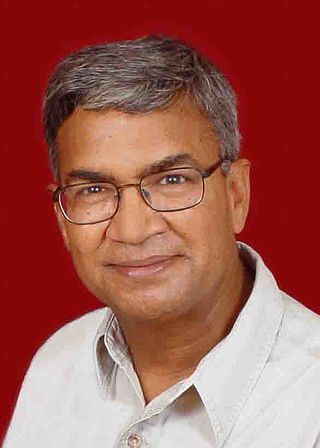
Anil K. Gupta is an Indian-American philosopher who works primarily in logic, epistemology, philosophy of language, and metaphysics. Gupta is the Alan Ross Anderson Distinguished Professor of Philosophy at the University of Pittsburgh. He is also a Fellow of the American Academy of Arts and Sciences. His most recent book, Conscious Experience: A Logical Inquiry, was published by Harvard University Press in 2019.
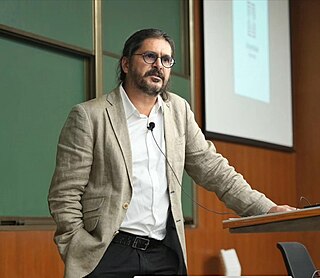
Jonardon Ganeri, FBA, is a philosopher, specialising in philosophy of mind and in South Asian and Buddhist philosophical traditions. He holds the Bimal Matilal Distinguished Professorship in Philosophy at the University of Toronto. He was Global Network Professor in the College of Arts and Science, New York University, previously having taught at several universities in Britain. Ganeri graduated from Churchill College, Cambridge, with his undergraduate degree in mathematics, before completing a DPhil in philosophy at University and Wolfson Colleges, Oxford. He has published eight monographs, and is the editor of the Oxford Handbook of Indian Philosophy. He is on the editorial board of the Stanford Encyclopedia of Philosophy, the British Journal for the History of Philosophy, Philosophy East & West, Analysis, and other journals and monograph series. His research interests are in consciousness, self, attention, the epistemology of inquiry, the idea of philosophy as a practice and its relationship with literature. He works on the history of ideas in early modern South Asia, intellectual affinities between India and Greece, and Buddhist philosophy of mind, teaches courses in the philosophy of mind, the nature of subjectivity, Buddhist philosophy, the history of Indian philosophical traditions, and supervises graduate students on South Asian philosophical texts in a cross-cultural context. He is a prominent advocate for an expanded role for cross-cultural methodologies in philosophical research, and for enhanced cultural diversity in the philosophical curriculum. Jonardon Ganeri is the inventor of the idea of "cosmopolitan philosophy" as a new discipline within philosophy.